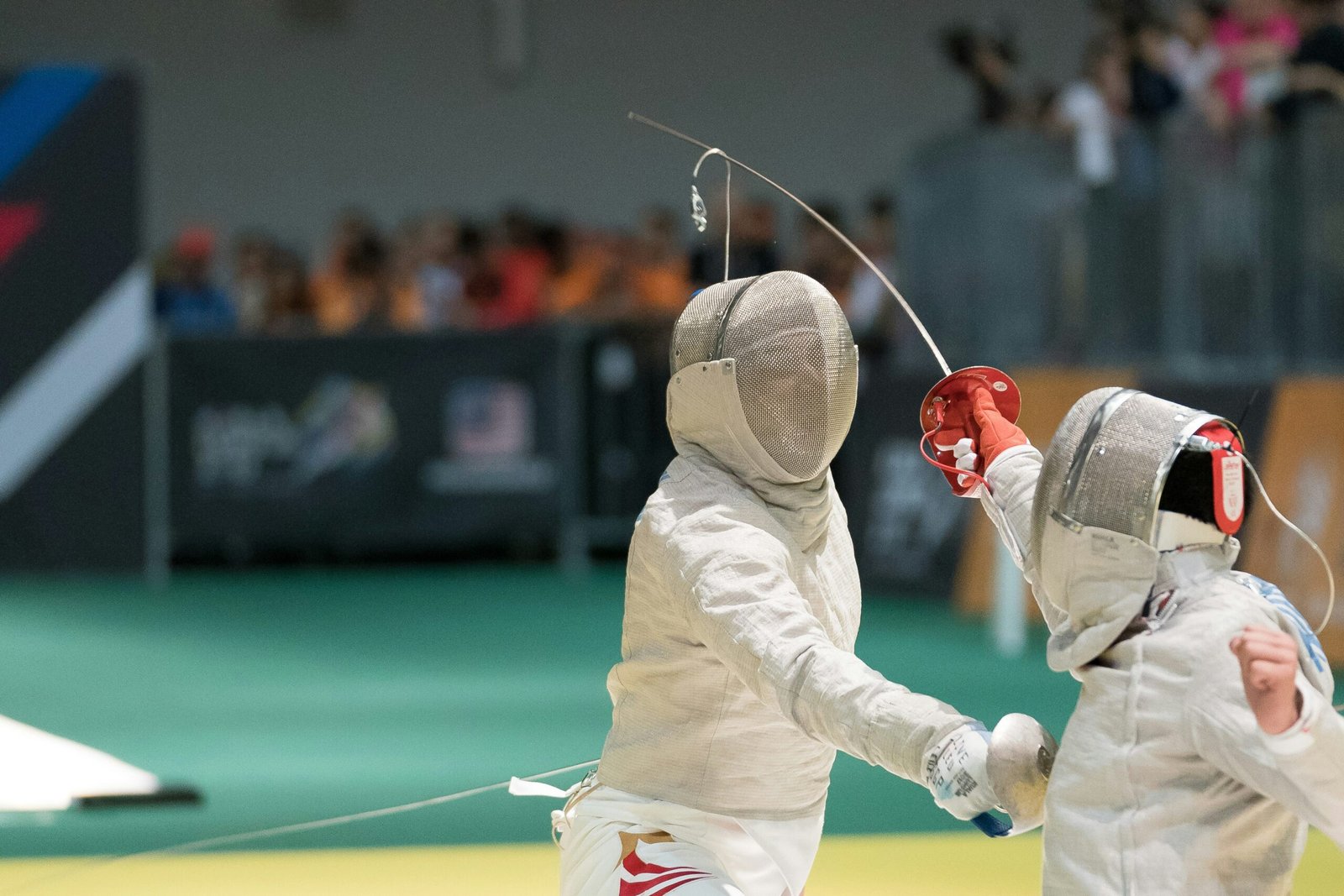Introduction to Hydration and Athletic Performance
Hydration is a fundamental aspect of athletic performance that often goes overlooked. The human body, which is composed of approximately 60% water, relies on adequate fluid levels to maintain optimal physiological function. Water plays a critical role in numerous bodily processes, including temperature regulation, nutrient transport, and waste elimination. Consequently, athletes must pay close attention to their hydration status to ensure peak performance during training and competition.
When athletes engage in strenuous exercise, they lose fluids through sweat and respiration, which can lead to dehydration if not properly managed. Dehydration can negatively affect various aspects of physical performance, including endurance, strength, and cognitive function. For instance, a decline in hydration levels by just 1-2% can result in reduced endurance capacity, impaired thermoregulation, and decreased neuromuscular coordination. It is essential for athletes to understand the importance of hydration in preventing these performance detriments.
This article aims to explore the significant implications of hydration on athletic performance. We will delve into the various factors influencing an athlete’s hydration needs, including the intensity and duration of exercise, environmental conditions, and individual physiological differences. Furthermore, we will examine the signs and symptoms of dehydration and discuss effective strategies for maintaining optimal hydration before, during, and after physical activity. By highlighting the integral role hydration plays in sports performance, we hope to equip athletes and coaches with the necessary knowledge to make informed hydration choices, ultimately enhancing performance outcomes.
Understanding Hydration and Dehydration
Hydration refers to the process of providing adequate fluids to the body to support its various physiological functions. Water constitutes approximately 60% of an adult’s body weight and plays an essential role in regulating temperature, transporting nutrients, and eliminating waste. For athletes, maintaining optimal hydration levels is crucial, as the demands placed on the body during physical exertion can significantly increase fluid requirements. Factors such as exercise intensity, duration, environmental conditions, and individual sweat rates must all be taken into consideration when developing a hydration strategy.
On the contrary, dehydration occurs when the body loses more fluids than it takes in, disrupting its normal functioning. Athletes are particularly susceptible to dehydration due to fluid loss from sweating, especially during prolonged exercise in hot or humid environments. Mild dehydration can begin to impair performance, leading to symptoms such as decreased coordination, increased thirst, fatigue, and diminished concentration. If left unaddressed, more severe dehydration may result in serious health consequences, including heat exhaustion or heat stroke.
To encourage effective hydration practices, athletes should regularly monitor their fluid intake and assess their hydration status. A simple yet effective method involves paying attention to the color of one’s urine; pale yellow indicates adequate hydration, while dark yellow suggests dehydration. Additionally, athletes should be proactive in hydrating before, during, and after exercise to replace lost fluids and maintain performance levels. Enhanced hydration strategies, such as the consumption of electrolyte-rich fluids, can also support athletes’ recovery and overall health. Staying well-hydrated is not merely a recommendation but a critical requirement for peak athletic performance.
Hydration’s Impact on Physical Performance
Proper hydration is fundamental for athletes seeking to optimize their physical performance. Water constitutes a significant portion of body weight, and its availability affects various physiological functions critical for endurance, strength, speed, and coordination. When athletes are adequately hydrated, they benefit from improved muscle function, increased blood flow, and enhanced thermoregulation. Each of these factors plays a vital role in athletic performance, highlighting the necessity of maintaining proper fluid levels.
Research indicates that even mild dehydration of 1-2% of body weight can lead to measurable declines in performance metrics. For example, a study published in the Journal of Strength and Conditioning Research found that dehydrated athletes displayed significant reductions in aerobic performance and increased perceived exertion during endurance activities. Such findings underscore dehydration’s detrimental effects on stamina and endurance, crucial components for athletes in long-duration sports.
In addition to endurance, hydration also impacts strength and power output. According to a study in the International Journal of Sports Medicine, dehydration can lead to decreased maximal strength and explosive power in athletes. This reduction in physical capabilities not only affects performance in competitive scenarios but also increases the risk of injury. Given that strength and speed are integral for performance across various sports, maintaining hydration should be a priority for athletes during training and competitions.
Furthermore, hydration significantly influences coordination and cognitive function, which are essential for executing complex motor skills. Athletes who prioritize optimal fluid intake experience better focus and quicker reaction times. Thus, implementing effective hydration strategies, such as consuming water or electrolyte-rich beverages before, during, and after physical activity, can lead to enhanced athletic performance and overall well-being.
Hydration Strategies for Athletes
Proper hydration is paramount for athletes, influencing their performance, recovery, and overall health. To achieve optimal hydration, athletes should consider several strategies tailored to their sport, intensity, and individual needs. The type of fluid consumed plays a significant role in this process. Water is essential for general hydration; however, during prolonged or intense exercise, athletes may benefit from electrolyte-replenishing beverages. These drinks help to maintain electrolyte balance, which is crucial for muscle function and preventing cramping.
Timing is another critical aspect of effective hydration strategies. Athletes should aim to hydrate before, during, and after their workouts. Pre-exercise hydration should involve consuming fluids in the hours leading up to a session to ensure the body is adequately prepared. During exercise, it is crucial to drink fluids at regular intervals to compensate for losses due to sweating. Recommendations vary, but athletes typically should consume around 7 to 10 ounces of fluid every 10 to 20 minutes of activity. After exercise, rehydration helps to recover fluid losses. A general guideline is to consume 16-24 ounces of fluid for every pound lost during activity, facilitating effective recovery.
Furthermore, hydration plans should be individualized based on various factors, including the athlete’s sweat rate, the duration of exercise, and environmental conditions like heat and humidity. Some athletes may require more fluids than others, and understanding personal hydration needs can significantly enhance performance and recovery. A well-structured hydration strategy, when integrated into an athlete’s training regimen, fosters better endurance, quicker recovery, and improved overall performance. By prioritizing personalized hydration plans, athletes can ensure they are performing at their best, staying healthy, and minimizing the risks associated with dehydration.
Role of Electrolytes in Hydration
Electrolytes are essential minerals that carry an electric charge and play a fundamental role in hydration and various bodily functions crucial for athletes. These minerals include sodium, potassium, magnesium, calcium, and chloride, each contributing to the maintenance of fluid balance, nerve function, and muscle contractions. During physical activities, athletes lose electrolytes through sweat, leading to potential imbalances that can significantly affect performance and overall health.
When an athlete engages in vigorous exercise, the loss of electrolytes can result in symptoms such as muscle cramps, fatigue, and impaired cognitive function. An imbalance in these minerals can hinder the body’s ability to manage hydration effectively, posing risks such as dehydration or heat exhaustion. For instance, sodium is vital for maintaining blood volume and pressure, while potassium aids in muscle function. Therefore, the management of electrolyte levels becomes essential for sustaining peak performance.
Replenishing electrolytes during and after training sessions or competitions is critical for athletes. They can achieve this through various means, including consuming electrolyte-rich beverages, sports drinks, or natural sources like bananas, dairy products, and leafy greens. Additionally, pre- and post-workout meals should incorporate these vital minerals to help prevent depletion. It is important that athletes tailor their electrolyte intake according to their individual sweat rates and the intensity of their activities.
To summarize, electrolytes are crucial for maintaining proper hydration, supporting muscle function, and optimizing overall athletic performance. Athletes must be proactive in monitoring their electrolyte levels and ensuring adequate replenishment to minimize the risks associated with deficiencies. By understanding the role of electrolytes in hydration, athletes can better prepare for their physical demands and achieve their performance goals with confidence.
Hydration in Different Sports
Hydration plays a vital role in the performance of athletes across various sports. Understanding the distinct hydration needs inherent to different physical activities can significantly enhance athletic performance, reduce the risk of injury, and improve recovery times. Each sport presents unique challenges that influence how athletes should manage their fluid intake.
In endurance sports, such as marathon running, cycling, and triathlons, hydration is crucial due to prolonged exertion and the risk of fluid loss through sweat. Athletes in these fields should begin their hydration strategy before competition, maintaining fluid intake throughout the event. A typical recommendation involves consuming water or sports drinks that replace electrolytes lost due to extensive sweating every 15 to 20 minutes, depending on the environment and personal sweat rate. The aim is not only to sustain performance but also to prevent dehydration, which can severely impair physical functions.
Team sports, like soccer, basketball, and football, also require careful consideration of hydration protocols. Matches can lead to high-intensity bursts of activity followed by periods of rest, making it essential for athletes to hydrate sufficiently during breaks. Coaches should encourage players to drink water or electrolyte-infused beverages during these moments and to adopt a pre-game hydration strategy. The key is to stay ahead of fluid loss to maintain energy and focus throughout the game.
For weightlifters and athletes participating in resistance training, hydration is equally important, although the focus may differ. With increased concentration on performance and muscle efficiency, staying hydrated aids in muscular function and overall endurance. These athletes should aim for regular hydration throughout their training regimen, often consuming fluids prior to, during, and following workouts to support muscle recovery and prevent cramping.
Measuring Hydration Status
Monitoring hydration status is a critical factor that influences athletic performance. Athletes can utilize various practical methods to assess their hydration levels effectively. One of the simplest and most accessible techniques is urine color assessment. This method relies on the observation of urine color, which can range from light yellow to amber. A pale yellow color generally indicates proper hydration, whereas darker shades may signal inadequate fluid intake. Although this method is quite effective, it can be influenced by factors such as diet and specific supplements, so it should be used in conjunction with other techniques for a comprehensive evaluation.
Another practical method for assessing hydration status is tracking body weight changes. Athletes should weigh themselves before and after exercise to determine fluid losses during physical activity. A weight loss of 1-2% of total body weight can indicate that hydration is necessary, particularly in events lasting longer than an hour. However, it is crucial to consider the body weight baseline, as fluctuations can be impacted by factors such as food intake and clothing worn during the activity.
For more advanced assessments, hydration sensors have become increasingly popular. These devices measure physiological markers such as sweat rate and electrolyte levels, providing real-time data about an athlete’s hydration status. The data generated by these sensors can help athletes tailor their hydration strategies more accurately throughout training and competition. It is essential to understand how to interpret the results from these sensors effectively, as they can inform athletes on when to drink, how much to consume, and what types of fluids are most beneficial for maintaining optimal hydration levels. Ultimately, utilizing multiple methods for measuring hydration status can enhance an athlete’s understanding of their individual hydration needs and significantly improve performance outcomes.
Common Myths and Misconceptions about Hydration
Hydration is a fundamental aspect of athletic performance, yet several myths and misconceptions persist regarding fluid intake. One of the most pervasive misunderstandings is that athletes only need to hydrate during exercise. In reality, proper hydration should start well before any physical activity. The body requires a consistent intake of fluids throughout the day to maintain optimal performance levels, and dehydration can negatively impact both physical and cognitive functions.
Another common myth is that sports drinks are always necessary for hydration during exercise. While these drinks can be beneficial for prolonged workouts or intense activities, they are not essential for all athletes. For most individuals participating in moderate workouts, water is sufficient for maintaining hydration levels. Consuming sugary or electrolyte-rich sports drinks unnecessarily can lead to excessive calorie intake and may even contribute to gastrointestinal discomfort.
Additionally, there is a belief that thirst is a reliable indicator of hydration needs. However, relying solely on thirst can lead to dehydration, especially in high-intensity sports or warm environments. Athletes should monitor their fluid intake proactively, aiming for specific hydration goals based on activity intensity and duration. A general guideline is to drink water regularly throughout the day, increasing intake during workouts, and to consider factors such as climate and individual sweat rates.
It is also frequently suggested that drinking large amounts of water in a short period is the best way to prepare for athletic performance. This practice can backfire, leading to a dangerous condition known as hyponatremia, where the body’s sodium levels become diluted. Athletes should prioritize steady hydration and tailor their fluid intake to their personal needs rather than following generic recommendations.
Understanding these misconceptions is crucial for athletes of all levels to implement evidence-based hydration strategies that support their performance and overall health.
Conclusion: The Bottom Line on Hydration for Athletes
Hydration plays a pivotal role in athletic performance, serving as a cornerstone for achieving optimal results in both training and competition. Throughout this discussion, we have highlighted the numerous ways in which maintaining proper hydration levels can significantly impact an athlete’s physical capabilities, energy levels, and overall health. Dehydration, even in mild forms, can impair performance, leading to reduced endurance, strength, and cognitive function, all of which are critical for athletes striving for excellence.
To ensure that athletes can maximize their performance, it is vital to develop a proactive approach to hydration. This involves understanding individual hydration needs, which can vary based on factors such as body weight, climate conditions, and the intensity of training sessions. Athletes should implement regular fluid intake before, during, and after physical activities to combat the risks associated with dehydration effectively. This not only aids in maintaining optimal hydration levels but also supports quicker recovery and minimizes fatigue.
Moreover, understanding the signs of dehydration, including thirst, dizziness, and fatigue, can empower athletes to take immediate action. Utilizing strategies such as monitoring urine color or employing hydration journals can further enhance awareness and ensure consistency in hydration practices. By prioritizing hydration, athletes will not only achieve performance enhancements but also contributions towards long-term health and well-being.
In conclusion, the importance of hydration cannot be overstated. Taking the necessary steps to prioritize and manage fluid intake enables athletes to attain their full potential. As athletes design their training regimens and competition strategies, incorporating effective hydration strategies is essential to fostering both physical performance and optimizing competitive outcomes.







+ There are no comments
Add yours